Thanks to Mongolia, we might become a camping family. Keep in mind, this is coming from someone born and bred in the most urban of environments - New York City. Never have I ever been remotely tempted to “rough it” in the wild. No amount of roasted marshmallows or even smores was worth a night out in the woods. During our travels we have slept on trains, planes and boats, in everything from a storage hut to a shaman's home, several times on floors but never in a tent.
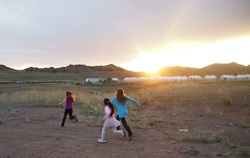
That all changed in Mongolia, which might beat Bolivia's claim to the country with the least developed infrastructure for tourists. Hotels as Westerners would recognize them are thin on the ground outside of the capital city. Even if you find a concrete structure with multiple rooms advertised as such, the pillows are filled with pebbles and the shower is a thin drizzle of cold water. The few Ger camps set up for tourists that we stayed at are admirably authentic in retaining the hard as rocks, thin mattresses and pit toilets of the nomad herders. One camp had a very picturesque location right by a creek and, even better, a supremely friendly little girl who despite a complete language barrier immediately initiated a game of tag with the girls. Unfortunately as the evening wore on all the various guides and drivers drifted together into the Ger next to us for an all night, vodka fueled sing along. After that I decided we were better off camping.
Fortunately, Mongolia is the ideal place to camp. The entire population is nomadic, so there is never any question of being able to set up tents whenever and wherever you like. The water is so pure you can refill your water bottles from the streams and creeks as you cross them and you can take your pick of parking spots - lakeside, cliffside, next to sacred ovoos, sometimes just being a single speck in the vast open steppes. The only time we were in a less than scenic spot was when we stopped on the edge of a mining town. Tuya insisted that instead of camping on the soft grass, we hunker down in the construction zone between a family’s Ger and the house they were in the process of building. This was because the workers in the mine get so drunk they are known to drive manically in circles chasing after each other, so camping anywhere in the open was dangerous. Fortunately that night must not have been payday and we heard nothing.
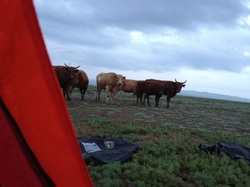
I admit it, I have succumbed to camping’s charm. Our pop open tents are a snap to set up and with mats and blankets we are cosy and warm. My favorite moment of the day was been waking up and zipping open the front flap. Usually it is just to see the glorious vista but you never know what will be out there. We have woken up surrounded by cows, camels and horses, their guardian having nonchalantly wandered over to investigate, bringing his entire herd with him. They look at us, we look at them. Once we emerged in the midst of a herd of tiny goats all but climbing on top of the tents in their search for something to nibble on. Another time two giant hairy Yaks were having a difference of opinion just steps from our door.
The night we camped up on a hill I woke up to find Miriam and Leontine tumbled into a heap, barely contained by the bottom edge of the tent but still sleeping peacefully. When we were in the desert I could poke my head out the opening and look at a sky filled with the brightest, closest stars I had ever seen. The most dramatic setting was definitely the edge of the flaming Cliffs. There I insisted everybody pee before bed and zip up tightly to prevent sleep walking!
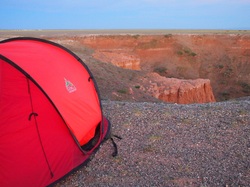
These are the cliffs where the very first Dinosaur eggs were found. No one even knew dinosaurs laid eggs till the American archeologist Roy Chapman Andrews got lost on the Mongolian Steppes and stumbled across an entire fossilized nest. Chapman’s swashbuckling persona, by the way, was the inspiration for Indiana Jones. He eventually made his way back to make stunning discoveries of complete dinosaur skeletons some of whom were named after him. The surprising thing you find when you actually walk these cliffs is they are not hard stone, more like gigantic sand castles barely held together by their own weight. A good monsoon would wash them all away. I had a huge desire to grab a spoon and just start digging.
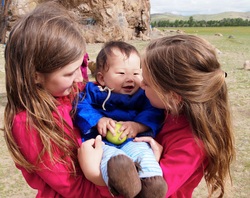
Occasionally we did stay in Gers with nomad families which had its own charms, mostly centered around animals. No matter how thin the mattresses, inevitably there are baby goats or lambs or maybe an adorably frisky puppy. The best however were the chubby cheeked human babies. The Chinese call Gers “Mongolian dumplings” because they are small and round. Eminently practical and movable they have changed little since the days of Chinggis Khan, though these days they are likely to be transported from the winter pastures to the summer ones folded up in the back of a truck rather then by horseback. Tho plain, they are cosy with rugs hanging on the wall. Small painted chests are the only furniture besides the beds which serve as sofas during the day. One side is designated male which is where the horse saddles and paraphernalia are stashed and the other side is female, holding the stove and kitchen equipment.
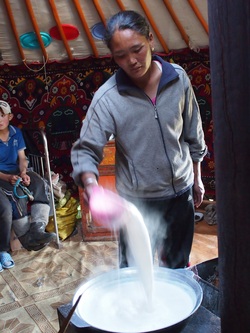
Each and every time you enter a Ger you are welcomed with a bowl of salted milky tea and a plate of hard cheese. It almost makes sense that there would be no hotels outside of the biggest towns since if you need a bed for the night you can just hunker down with any family you run into. Unfailingly polite, they are remarkably unconcerned with us as visitors. After the initial “where are you from?” they ask where we drove from and where we are going but more in a “how are the roads” kind of way rather than any real curiosity about where we are originally from. After ten minutes everyone drifts back to daily life, the mom to preparing cheese or yogurt, the dad to branding goats and sheep, the kids to whatever they were doing before we stopped by. These are hardworking people who are completely unfazed by complete strangers stopping by for a meal or a night’s rest. Wandering strangers are par for the course.
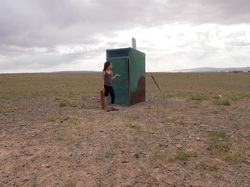
We generally do not take them up on their hospitality, preferring just to visit and then go off to our tents. We do occasionally take advantage of their out house - not the most glamorous of WCs but at least there is a door versus the open vista of the steppes. Grotty enough during the day it is slightly terrifying at night, first to find it in the pitch blackness, then to balance on the two wobbly boards above the drop. Maybe they move so often because the latrine gets too stinky rather than because the goats have eaten all the grass?
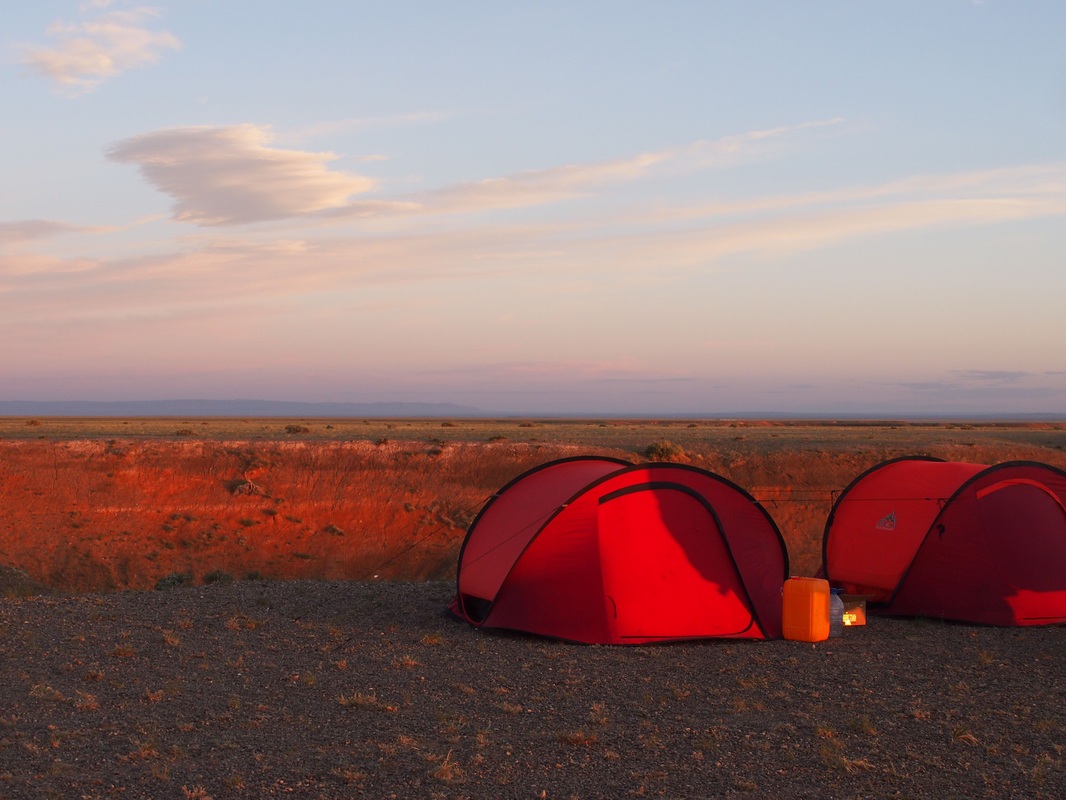
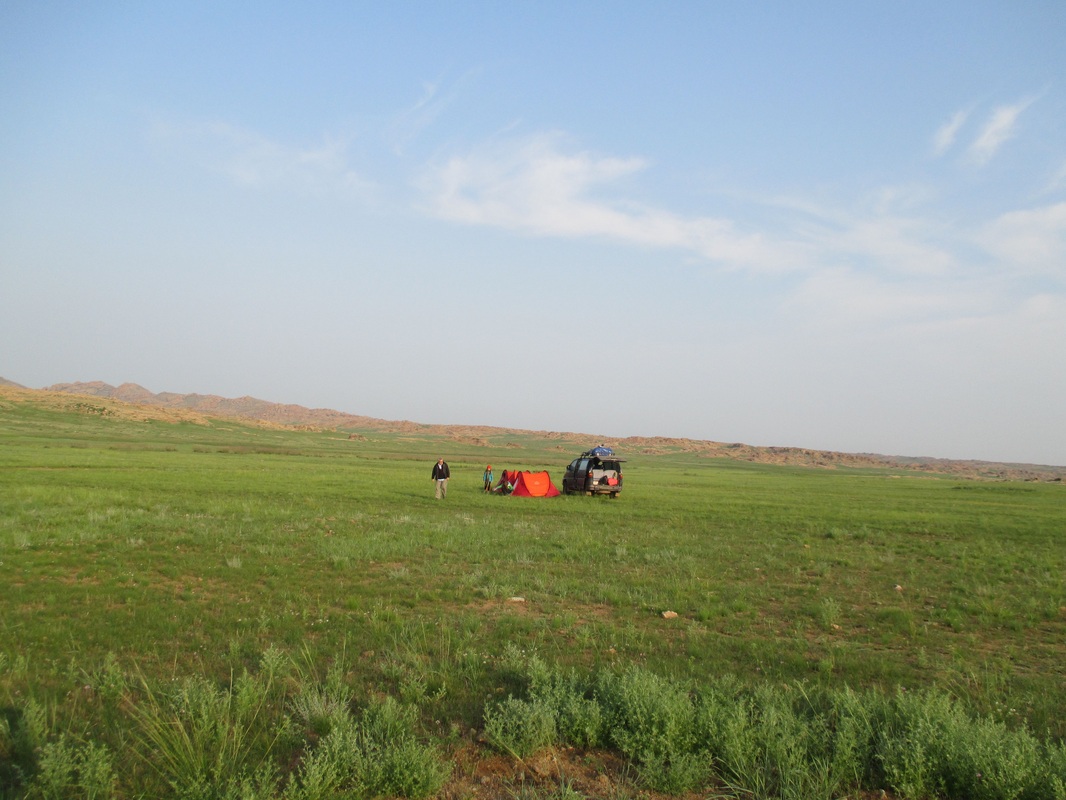
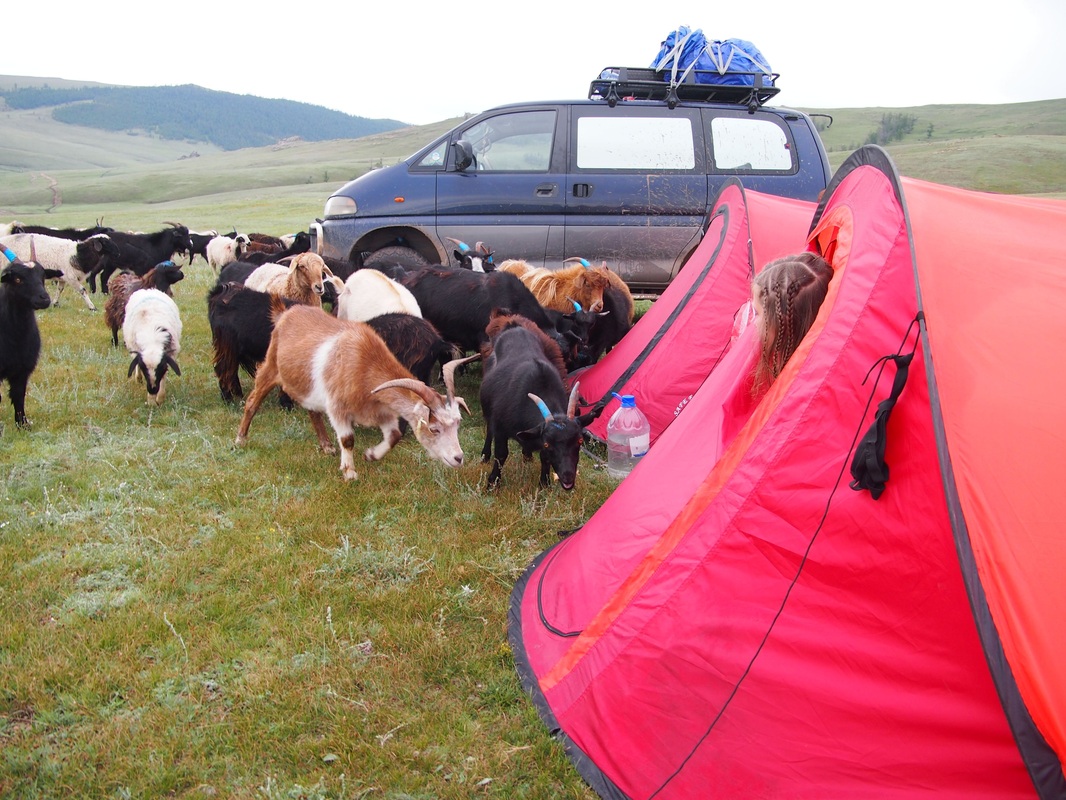
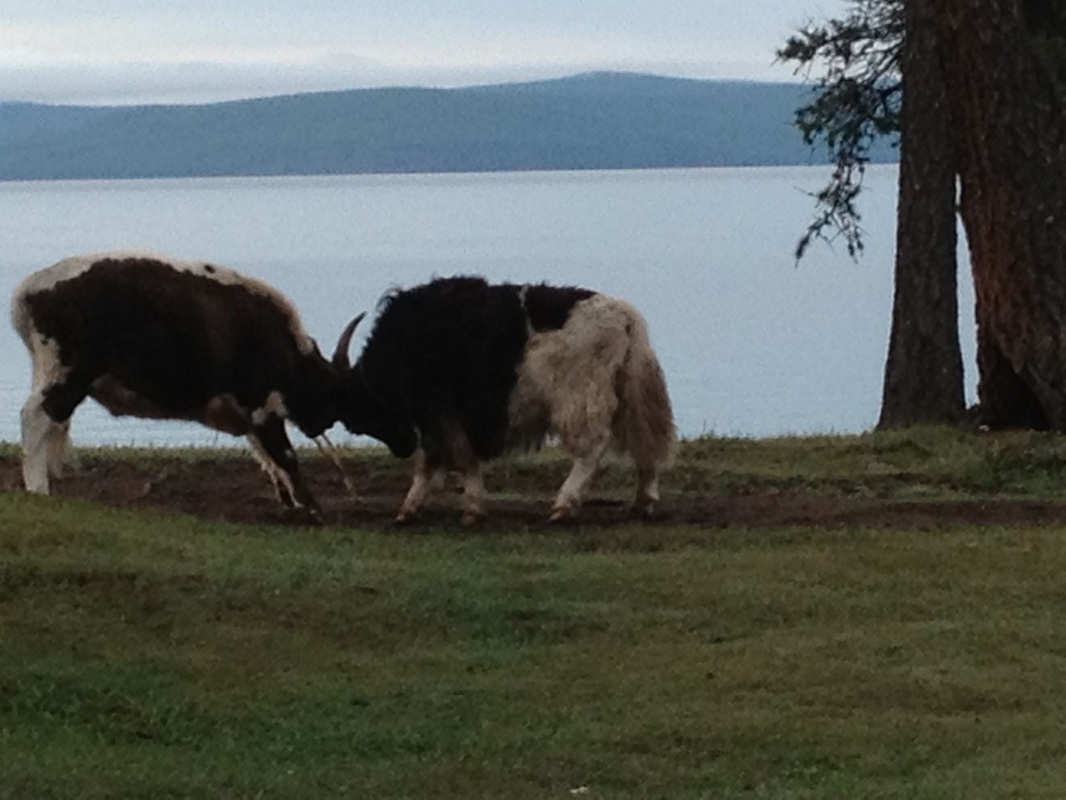
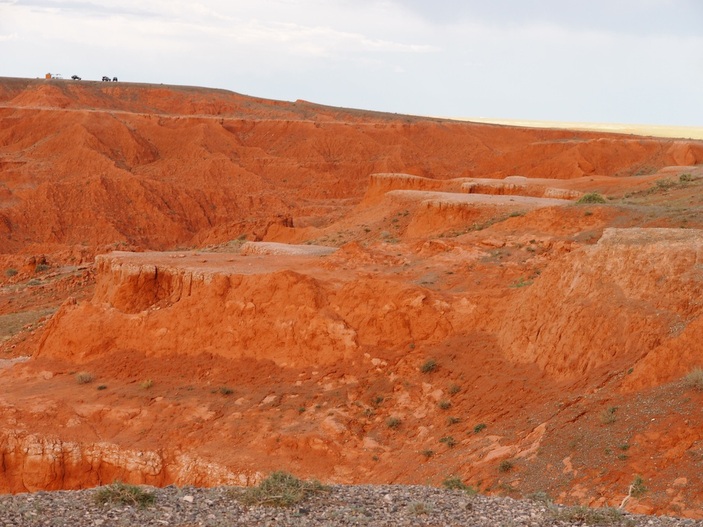
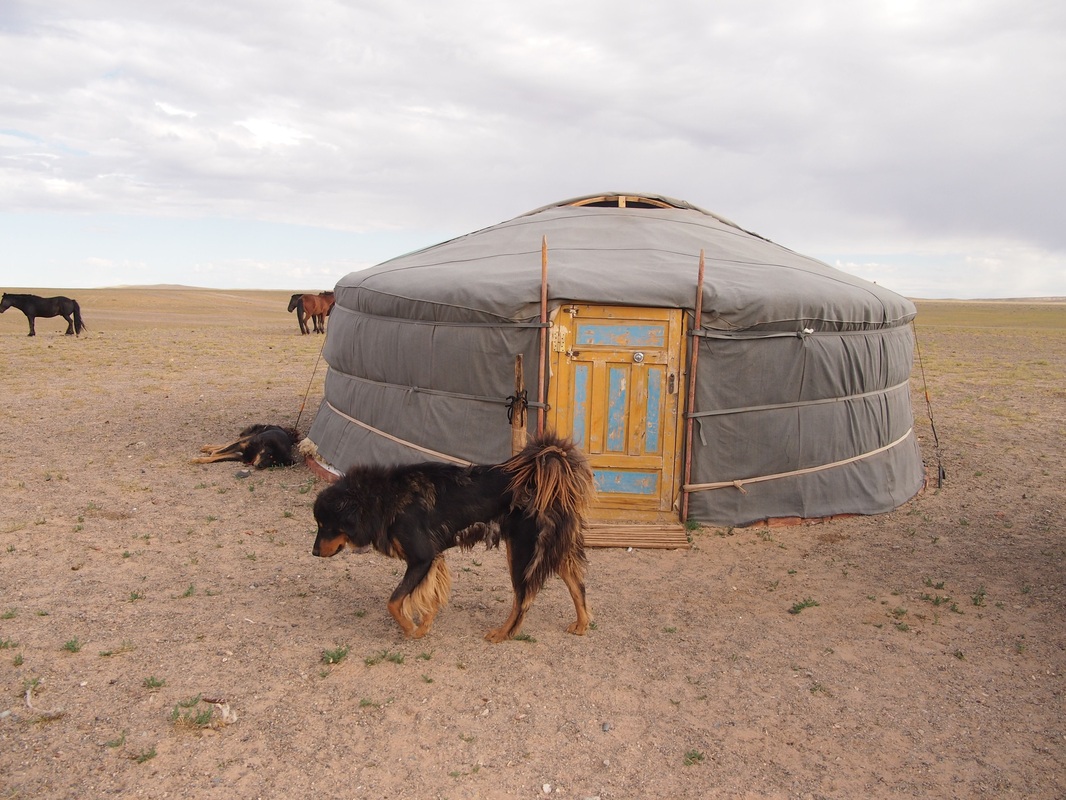
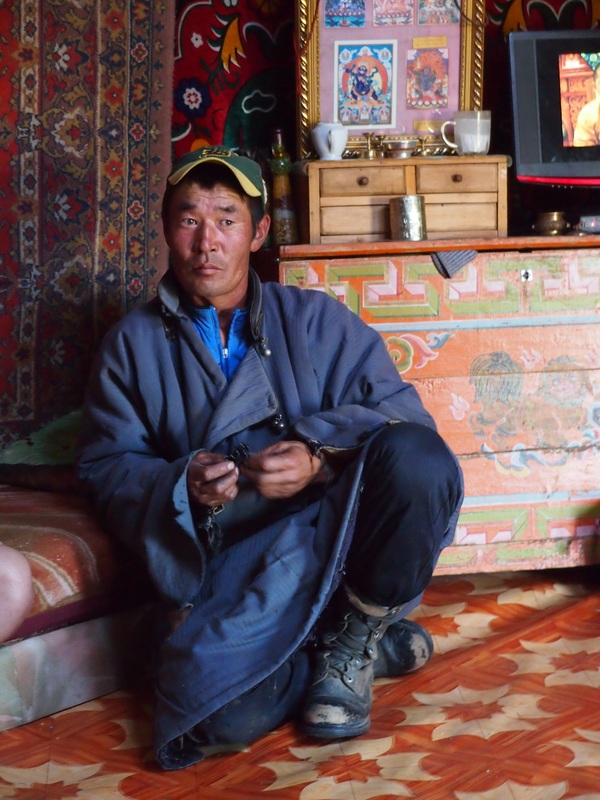
 RSS Feed
RSS Feed